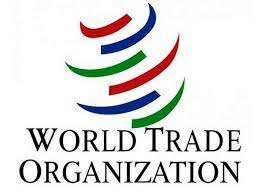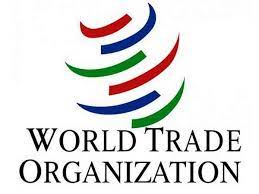
The mounting number of outstanding disputes and the expanding list of what the World Trade Organisation refers to as its members' "trade concerns" are the best indicators of the organization's predicament.
29 cases have been left unresolved since late 2019, when the U.S. stopped the nomination of new judges to the WTO's Appellate Body citing concerns about judicial overreach, dealing a severe blow to the dispute resolution process.
China, the Dominican Republic, India, Indonesia, Morocco, Pakistan, South Korea, and the United States are among the countries that have deposited cases.
"No more fraud, no more pretending you're appealing,” former deputy director-general Alan Wolff told a WTO conference last month, urging countries to hold off on fresh appeals from 2024, when WTO members have pledged to address the issue.
A "polycrisis" of pandemic, war in Ukraine, and inflation is eroding confidence in globalisation, according to the WTO. As a result, WTO members are becoming less concerned with international trade regulations.
It issued a warning last month that an increase in unilateral actions, if left unchecked, would fracture the world economy and drain 5% of global wealth.
Since 2018, when then-President Donald Trump was slamming tariffs on commodities from China and other countries, import restrictions have loosened, but export restrictions have more than offset their fall.
Between 2016 and 2019, these limitations increased by an average of 21, but in 2018, they increased by 139.
This has led to an increase in "concerns" voiced at the WTO. These have specifically targeted export limitations, such as those on Indian rice, as well as the subsidies that the clean technology movement has unleashed, such as the U.S. Inflation Reduction Act, which favours North American manufacturers, or the export limits on Chinese electric vehicle manufacturers that the EU is looking into.
While the European Union, which still preaches respect to WTO standards, has subsidies and targets to improve domestic supply of essential minerals and green production, the U.S. Buy American Act also plans to increase local content requirements.
According to Keith Rockwell, senior scholar at the Hinrich Foundation, the WTO is "teetering on the abyss of irrelevance".
"People are not feeling in any way constrained by their obligations to the WTO when it comes to policy and that was not the case a decade ago," he said, adding that for Washington, the driving force behind the creation of the rules-based trading system, the WTO was now "not on the radar screen".
The United governments has invoked exceptions to WTO rules for national security to limit metal imports, while several Gulf governments have used same exceptions to impose trade restrictions on Qatar.
Beijing has limited the export of essential minerals, and Washington has worked to block Chinese access to American technology, with national security taking precedence over international trade agreements.
Although it takes a complete consensus to make any changes, the 164 members generally believe that the WTO, which houses 620 employees in an art-deco structure on the shores of Lake Geneva, has to be reformed.
Some reformers want to bring back the Appellate Body, but the United States will not accept this.
The United States thinks change is necessary to address what it claims are the unfair practises of state-owned businesses that skew competition, particularly those in China.
Reforms might also address problems like climate change, data flows, or artificial intelligence that were not taken into account when the WTO was established.
The 13th ministerial conference (MC13) of the WTO is expected to focus heavily on reform.
One WTO representative headquartered in Geneva stated that it appeared the Biden administration did not think more trade liberalisation was in the interests of the United States, a belief that might be confirmed in 2024, a year of a presidential election.
"And if they don't believe that is in their interest it somewhat blunts the role of the WTO," the delegate said. "The same factors that made MC12 difficult will make MC13 difficult, namely Indian obstructionism and U.S. indifference."
While pointing out that 75% of goods trade is still based on tariff conditions that WTO members give to one another, the WTO contends that the world needs a renewed push towards integration, or what it calls re-globalization, to address issues like climate change and poverty reduction.
"Take that away, and we are left with chaos and what would become a power-based rather than a rules-based system," said Director-General Ngozi Okonjo-Iweala.
(Source:www.economictimes.com)
29 cases have been left unresolved since late 2019, when the U.S. stopped the nomination of new judges to the WTO's Appellate Body citing concerns about judicial overreach, dealing a severe blow to the dispute resolution process.
China, the Dominican Republic, India, Indonesia, Morocco, Pakistan, South Korea, and the United States are among the countries that have deposited cases.
"No more fraud, no more pretending you're appealing,” former deputy director-general Alan Wolff told a WTO conference last month, urging countries to hold off on fresh appeals from 2024, when WTO members have pledged to address the issue.
A "polycrisis" of pandemic, war in Ukraine, and inflation is eroding confidence in globalisation, according to the WTO. As a result, WTO members are becoming less concerned with international trade regulations.
It issued a warning last month that an increase in unilateral actions, if left unchecked, would fracture the world economy and drain 5% of global wealth.
Since 2018, when then-President Donald Trump was slamming tariffs on commodities from China and other countries, import restrictions have loosened, but export restrictions have more than offset their fall.
Between 2016 and 2019, these limitations increased by an average of 21, but in 2018, they increased by 139.
This has led to an increase in "concerns" voiced at the WTO. These have specifically targeted export limitations, such as those on Indian rice, as well as the subsidies that the clean technology movement has unleashed, such as the U.S. Inflation Reduction Act, which favours North American manufacturers, or the export limits on Chinese electric vehicle manufacturers that the EU is looking into.
While the European Union, which still preaches respect to WTO standards, has subsidies and targets to improve domestic supply of essential minerals and green production, the U.S. Buy American Act also plans to increase local content requirements.
According to Keith Rockwell, senior scholar at the Hinrich Foundation, the WTO is "teetering on the abyss of irrelevance".
"People are not feeling in any way constrained by their obligations to the WTO when it comes to policy and that was not the case a decade ago," he said, adding that for Washington, the driving force behind the creation of the rules-based trading system, the WTO was now "not on the radar screen".
The United governments has invoked exceptions to WTO rules for national security to limit metal imports, while several Gulf governments have used same exceptions to impose trade restrictions on Qatar.
Beijing has limited the export of essential minerals, and Washington has worked to block Chinese access to American technology, with national security taking precedence over international trade agreements.
Although it takes a complete consensus to make any changes, the 164 members generally believe that the WTO, which houses 620 employees in an art-deco structure on the shores of Lake Geneva, has to be reformed.
Some reformers want to bring back the Appellate Body, but the United States will not accept this.
The United States thinks change is necessary to address what it claims are the unfair practises of state-owned businesses that skew competition, particularly those in China.
Reforms might also address problems like climate change, data flows, or artificial intelligence that were not taken into account when the WTO was established.
The 13th ministerial conference (MC13) of the WTO is expected to focus heavily on reform.
One WTO representative headquartered in Geneva stated that it appeared the Biden administration did not think more trade liberalisation was in the interests of the United States, a belief that might be confirmed in 2024, a year of a presidential election.
"And if they don't believe that is in their interest it somewhat blunts the role of the WTO," the delegate said. "The same factors that made MC12 difficult will make MC13 difficult, namely Indian obstructionism and U.S. indifference."
While pointing out that 75% of goods trade is still based on tariff conditions that WTO members give to one another, the WTO contends that the world needs a renewed push towards integration, or what it calls re-globalization, to address issues like climate change and poverty reduction.
"Take that away, and we are left with chaos and what would become a power-based rather than a rules-based system," said Director-General Ngozi Okonjo-Iweala.
(Source:www.economictimes.com)














